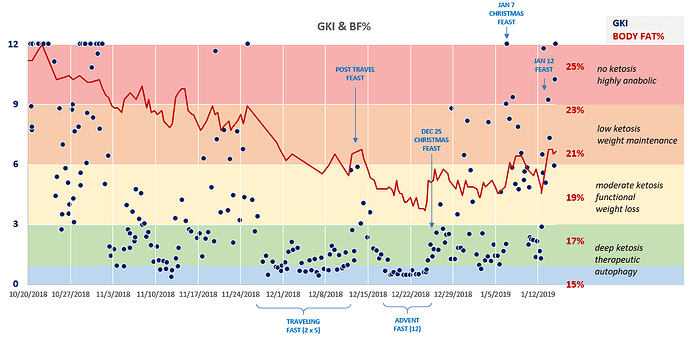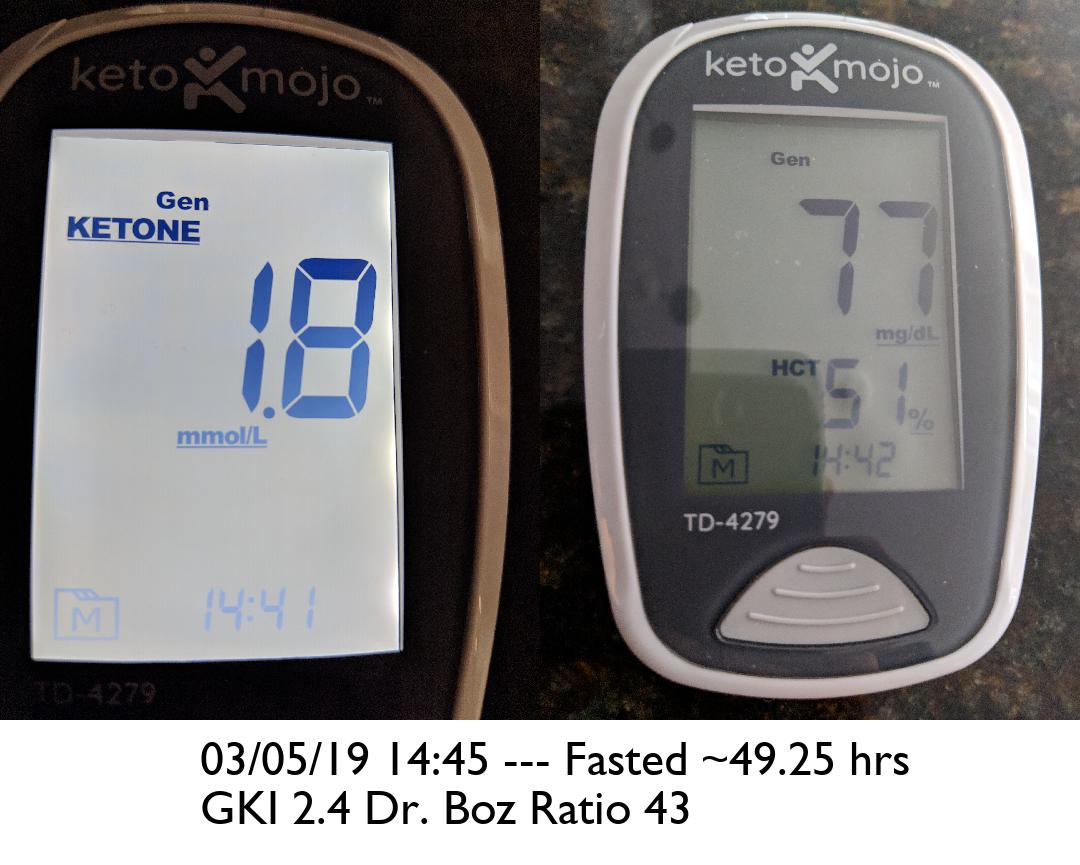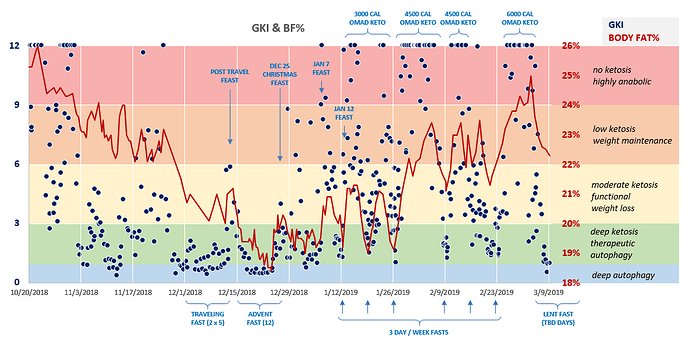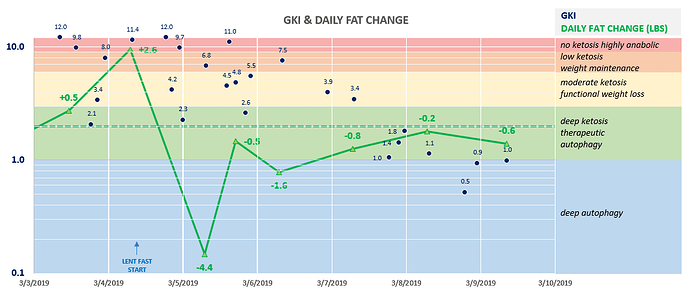I wrote the following before reading all of the comments – which do seem to confirm most of my suppositions. At the risk of confusing someone, the post is as originally written but I am going to re-read Karim’s info which is very helpful (though I don’t fully understand his graph yet) and additional references to GKI.
About minute 22-26 in Dr. Boz’s linked video Autophagy and Glucose Ketone Ration
Glucose Ketone Ratio needs to have UNITS specified to keep this straight.
Glucose in mg/dL makes 100 a sensible reading
Ketone in mmol(/L) is what makes sense with the numbers you are giving.
Seyfried uses a conversion factor with these units rather than a straight ratio but then doesn’t give a set of clear targets (that I’ve found) but seems to want cancer patients at less than 1.0
So Seyfried’s Glucose Ketone Index (GKI) looks to be a factor 18.016 (Glucose to mol conversion) smaller than Dr. Boz Glucose Keto ratio. (His 1.0 would be her 18 or approximately 20)
Both of these would be different numbers of either of the 2 measurements were using different units.
Seyfried’s paper comes with a spreadsheet link for calculating his GKI, and giving all the conversions.
Being math oriented it is confusing me so my guess is that it will confuse others – or they will get it correct by accident or wrong by reading meters differently.
My current levels from #CarnivoreDiet onto a 70 hour fast were:
Glucose 103 mg/dL
Ketones 0.9 mmol/L
= Seyfried GKI of 6.41
= Dr. Boz ratio of 114
(Which seems quite a bit higher than I expected though I may be well adapted to ketones at this point rather than having trouble making them
Also, even were my Glucose to drop to 80, it would still miss as a longshot autophagy indicator.
On a side note:
At 70+ hours of a water fast, I’m dropping weight by the kilo, about 3 lbs per day, and this is following losing 50+ lbs and being on Carnivore or Keto diet for many months (8+)
My Ketostick is going moderate to large almost immediately even though the (new) meter shows only 0.9 mmol.
(nominal 40 second developing time on the ketostick)
I have been using the sticks for decades to gauge ketosis so having such seemingly poor correlation is confusing.







 and my ketones were only 3.8 at the time… I think that my body actively took that cue to push ketones up into the high 5s after that.
and my ketones were only 3.8 at the time… I think that my body actively took that cue to push ketones up into the high 5s after that.